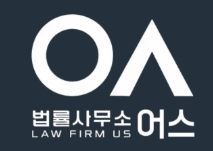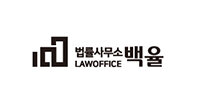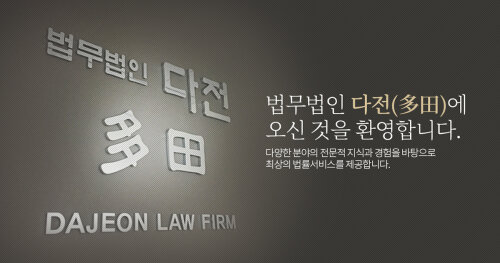Best Child Abuse Lawyers in South Korea
Share your needs with us, get contacted by law firms.
Free. Takes 2 min.
Free Guide to Hiring a Family Lawyer
Or refine your search by selecting a city:
List of the best lawyers in South Korea
About Child Abuse Law in South Korea
Child abuse in South Korea is a significant concern and is addressed through various legal frameworks aimed at protecting the rights and welfare of children. The South Korean government has enacted and enforced laws designed to prevent child abuse, prosecute offenders, and offer assistance and support to victims. Penalties for child abuse can vary depending on the severity and nature of the abuse, and legal reforms continue to evolve in response to growing awareness and societal demands for child protection.
Why You May Need a Lawyer
Engaging a lawyer specializing in child abuse might be necessary in several situations, including:
- If you are a victim or a parent/guardian of a victim needing to navigate the legal system to secure protection and justice.
- If you are accused of child abuse and require legal representation to ensure a fair trial and proper defense.
- If you need assistance in understanding your rights as they pertain to existing child protection services and custody-related issues.
- When seeking to file a lawsuit or claim damages concerning child abuse incidents.
Local Laws Overview
South Korea's legal framework on child abuse includes several critical aspects:
- Child Welfare Act: This act provides comprehensive measures for the protection and welfare of children. It outlines the responsibilities of individuals and government bodies in preventing child abuse.
- Penal Code: South Korea's Penal Code includes various provisions for punishing physical and sexual abuse of children. The law imposes harsh penalties depending on the severity of the crime.
- Child Abuse Prevention Act: This legislation aims at preventing abuse and mandates that specific authorities report any suspected child abuse cases. It also provides for the establishment of counselling centers and protection services.
- Personal Rights and Anti-Discrimination Law: Offers additional protection against violations of children's rights and any form of discrimination that might exacerbate situations of abuse.
Frequently Asked Questions
What constitutes child abuse under South Korean law?
Child abuse in South Korea encompasses physical, emotional, and sexual harm to a child. It also includes neglect and any act that jeopardizes a child's safety and wellbeing.
Do teachers and health professionals have a duty to report child abuse?
Yes, certain professionals, including teachers and healthcare providers, are legally obligated to report any suspected cases of child abuse.
How is child abuse reported in South Korea?
Abuse can be reported to the police, child protection agencies, or through a child help-line. Immediate reporting ensures timely intervention and protection.
What types of support are available for victims of child abuse?
The government provides numerous support services including counselling, medical care, legal aid, and temporary shelters.
How are child abuse cases prosecuted?
Once reported, child abuse cases are investigated by the police, and prosecuted by public prosecutors in court. The judicial process may involve various hearings, depending on the case complexity.
What penalties does one face for committing child abuse?
Penalties can vary from fines to lengthy prison sentences, depending on the abuse's nature, severity, and resultant harm to the child.
Are there preventive programs aimed at reducing child abuse?
Yes, several public awareness and educational programs aim to prevent child abuse and promote understanding of child rights.
Can foreigners be involved in child abuse cases?
Yes, foreigners residing in South Korea are subject to the same legal standards and obligations regarding child abuse as citizens.
Is there confidentiality in reporting child abuse?
Yes, reports of child abuse are treated with strict confidentiality to protect the victim and the reporter.
How can one find a lawyer specializing in child abuse cases?
Legal associations and child protection agencies can refer you to qualified lawyers specializing in child abuse cases.
Additional Resources
Here are some valuable resources and organizations related to child abuse in South Korea:
- National Child Protection Agency: Provides assistance and coordination of child protection services.
- Ministry of Gender Equality and Family: Offers programs and support for family and child welfare.
- Korean Bar Association: Can refer individuals to specialized legal professionals.
- Korea Child Abuse Prevention Association: Provides resources and support for preventing child abuse.
Next Steps
If you're seeking legal assistance related to child abuse, consider the following steps:
- Document the Incident: Collect any evidence, such as photographs, medical reports, or witness accounts, if applicable.
- Contact a Lawyer: Reach out to legal aid societies or bar associations for advice and representation.
- Report the Abuse: Contact local authorities or child protection services immediately to report the abuse.
- Seek Support Services: Engage with counselling and support groups to address emotional and psychological impacts.
- Stay Updated: Keep informed about the latest legal developments concerning child abuse in the country.
Lawzana helps you find the best lawyers and law firms in South Korea through a curated and pre-screened list of qualified legal professionals. Our platform offers rankings and detailed profiles of attorneys and law firms, allowing you to compare based on practice areas, including Child Abuse, experience, and client feedback.
Each profile includes a description of the firm's areas of practice, client reviews, team members and partners, year of establishment, spoken languages, office locations, contact information, social media presence, and any published articles or resources. Most firms on our platform speak English and are experienced in both local and international legal matters.
Get a quote from top-rated law firms in South Korea — quickly, securely, and without unnecessary hassle.
Disclaimer:
The information provided on this page is for general informational purposes only and does not constitute legal advice. While we strive to ensure the accuracy and relevance of the content, legal information may change over time, and interpretations of the law can vary. You should always consult with a qualified legal professional for advice specific to your situation.
We disclaim all liability for actions taken or not taken based on the content of this page. If you believe any information is incorrect or outdated, please contact us, and we will review and update it where appropriate.
Browse child abuse law firms by city in South Korea
Refine your search by selecting a city.

















